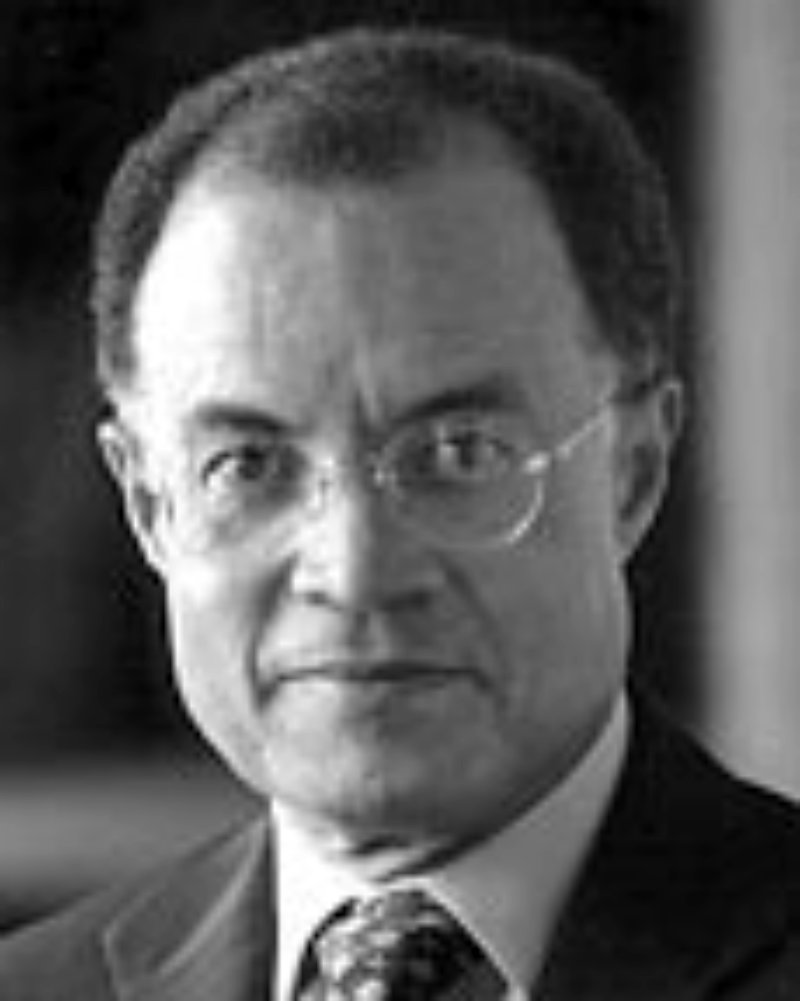
Wikimedia Commons
Law professor and civil rights lawyer Drew Saunders Days III LAW ’66 died on Sunday at the age of 79.
After graduating from Yale Law School in 1966, Days became a prominent civil rights lawyer who litigated cases related to police misconduct, school desegregation and employment discrimination, among others. He joined the Yale Law faculty in 1981 and taught classes in the fields of civil procedure, federal jurisdiction, Supreme Court practice, antidiscrimination law, comparative constitutional law and international human rights. According to Law School spokesperson Debra Kroszner, his cause of death was complications from dementia.
“Drew was a beloved member of our community, and we were lucky to teach and learn with him for nearly four decades,” Law School Dean Heather K. Gerken said. “He had a profound impact on the legal profession and this institution, and we will always honor his legacy and hold his family in our hearts.”
Days was a big presence at Yale Law School ever since he joined the faculty nearly 40 years ago. From 1988 to 1993, he served as the founding director of the Law School’s Orville H. Schell, Jr. Center for International Human Rights, which is dedicated to increasing knowledge about human rights issues and advancing human rights throughout the world. He also wrote numerous books and journal articles regarding Supreme Court jurisprudence and civil rights during his time at the school.
In 2003, Days received the Award of Merit from the Yale Law School Association in recognition of his contributions to the legal profession and his extensive public service.
“Drew was a gentle, courageous lawyer of principle, deeply committed to human and civil rights,” law professor and former Dean of the Law School Harold Koh wrote in an email to the News. “He always spoke quietly and modestly, but with such moral authority. … He was one of the moral centers of the Yale Law School in the late 20th Century. He cared nothing for titles or recognition, because his client was always the Constitution, not the political powers of the moment. His life will be remembered as a reminder of the moral urgency of putting principle first.”
Days also had a long career in public service. After volunteering for the Peace Corps in Honduras from 1967 to 1969, he worked at the NAACP Legal Defense and Educational Fund in New York City for eight years.
President Jimmy Carter nominated him to be the U.S. assistant attorney general for civil rights in 1977, making him the first African American to serve in that role. He was in charge of the government’s effort to protect affirmative action programs, which were first upheld as constitutional in the Supreme Court case Regents of the University of California v. Bakke.
In 1993, President Bill Clinton LAW ’73 nominated Days to serve as solicitor general in the Department of Justice. In this position, Days was responsible for arguing the government’s cases before the Supreme Court. He argued a total of 26 cases before the court during his lifetime, according to Oyez records.
Days also had a large presence in New Haven. In 2001, he became New Haven’s first Black proprietor of the New Haven Green. The five-person Committee of the Proprietors of the Common and Undivided Lands of New Haven is a nongovernmental organization that has managed the Green since the 17th century.
“I decided it was a great honor and an opportunity for me to contribute to the city in which I live — to help preserve and protect the Green, which is so important to New Haven and the community,” Days said at the time.
One block away from the Green, Dwight Chapel also held an important significance for Days. According to a New York Times article covering the event, Days married his wife Ann Langon-Days in the chapel in November 1966.
Days was born in Atlanta, Georgia in 1941 and raised in Tampa, Florida and New York. His litigation work brought him back to his childhood home of Tampa when he was part of the trial team in Mannings v. Board of Public Instruction of Hillsborough County, Florida. Days’ work contributed to the outcome of the case, which desegregated his childhood Tampa schools.
Days graduated from Hamilton College with a degree in English literature in 1963. He served on Hamilton College’s Board of Trustees, and the college named its Days-Massolo Center — which promotes community inclusion, facilitates intercultural dialogue and helps make Hamilton College a welcoming environment — after him in 2011.
“Drew Days, once subjected to segregated schools, eventually worked to eliminate the very laws that prevented him from attending a local school,” former Chief Diversity Officer of Hamilton College Donald Carter said in 2011. “Drew Days continues to devote his life to public service and a deeper understanding of social justice and the law.”
Days is survived by his wife, his two children, his granddaughters and his sister.
Julia Brown | julia.k.brown@yale.edu







